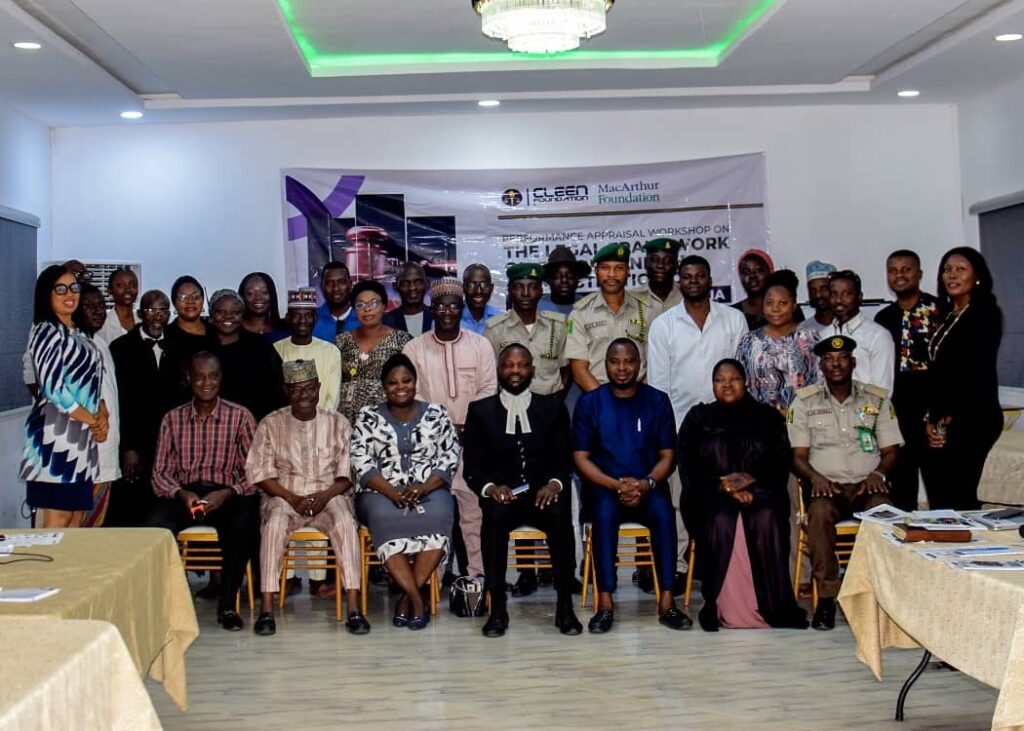By Ridwanullahi odofin
The Attorney General and Commissioner for Justice in Kwara State, Barrister Senior Ibrahim Sulyman, has called for the strengthening of criminal justice law in Nigeria through the amendments of the provision of evidence act.
This, he said, would guard against trial within trial and reduce congestion in state correctional centres.
Barrister Sulyman disclosed this today at a 2-day performance appraisal workshop on the Legal Framework on Parole and the administration of Criminal Justice Law in Nigeria, held at in Ilorin, Kwara State.
Parole means releasing someone after he/she has been found guilty of an offence. It may not be by releasing the person totally but by putting him under supervision where he/she committed another crime. It can be totally or on condition
The CJ, who was represented by the Director of Public Prosecution, Muhammed Akande noted that parole is carried out at the mercy of the government, the chief judge, or someone appointed by the governor to do the perogative.
“For someone to be on parole, it is at the mercy of the person that the law gives the parole either the governor or the chief judge or someone appointed by the governor to to the perogative.
In his welcome address, the Executive Director of CLEEN Foundation, Gad Peter, who was represented by Helen Anwana, said the workshop provides a platform to engage in critical discussions, share insights, and evaluate the current state of our legal framework on parole and its implications on criminal justice administration in Nigeria.
Also speaking, the Assistant Controller of Correction and Head of non custodial measure in Kwara State, Okunola Adebayo said although the board of parole has been inaugurated in the state, the modus of operation has not been documented.
He noted that the National Technical Committee on Parole is yet to formalise the modus, which will allow every state in the country to benefit.
“The parole system is a new phenomenon in the Nigerian criminal justice system even as it is being introduced to Nigerian Correctional Service. We are still learning the rope of how to exploit the benefits of parole. The workings of how to enjoy parole have not been institutionalised.
“In Nigeria today under the correctional service, no one has actually benefitted from parole because the national technical committee on parole is yet to formalise the modus through which the state is also going to be domesticated so that we can follow the tenets established to grant people parole.
Adebayo further emphasised that non custodial measures such as alternative dispute resolution and restorative justice should be employed to reduce congestion of the prison.
“One of the most exiting ways in which congestion of prison can be reduced is the introduction of non custodial measures such as the use of alternative dispute resolution. Instead of allowing all cases to go through the court processes, alternative dispute resolution can be used vis-a-vis restorative justice, which is trying to mediate between two warring factors in order to have out of court settlement. The other way is through community services for menial offences that are not criminal in nature.
The event, which draws key stakeholders from different works of life, featured panellist sessions and paper presentation.
The panellist sessions were centred around “Understanding the Mechanics of the Parole Systems in Nigeria” and “Challenges & Controversies of connecting the Parole system and ACJL Regime.
